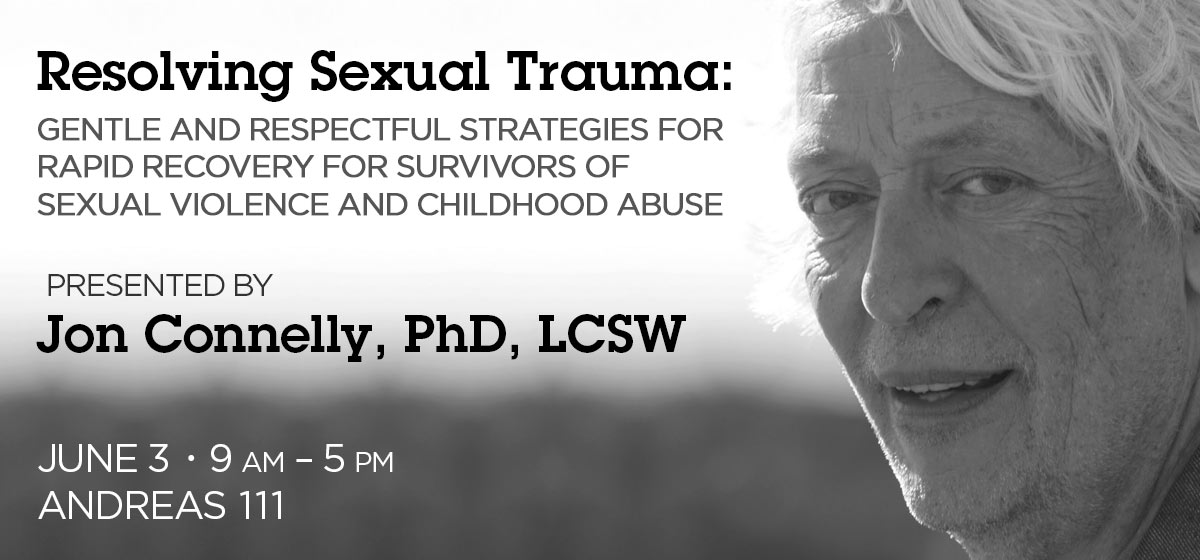In recent years, the vast breadth and depth of the impact of trauma on mental and physical health has become well established. These empirical findings now beg the question: "What can be done about trauma?"
During this seven-hour workshop, mental health professionals and graduate students will learn how trauma or emotional memories are addressed directly and experientially using respectful, strengths-based language to impact the way people automatically think, feel and react.
Jon Connelly, Ph.D., developed Rapid Resolution Therapy during his 40-year career as a clinical social worker. He is a dynamic, engaging presenter with unwavering conviction and passion for eliminating guilt, shame, anger and other emotional memories that keep people stuck.
June 3
9 a.m. – 5 p.m.
Andreas 111
11300 NE Second Ave
Miami Shores, FL 33161
To RSVP, contact the Office of Student Services at yalonso@barry.edu
5 Continuing Education Hours
About the Presenter:
Jon Connelly, PhD, LCSW
Dr. Connelly is the founder and developer of Rapid Resolution Therapy, a revolutionary, psychotherapeutic approach to resolving emotional and behavioral difficulties. He is the author of “Life Changing Conversations – The Power of Transformational Communication,” which demonstrates that dramatic therapeutic breakthroughs can be facilitated in a single psychotherapy session.
Connelly is the founder of The Institute for Survivors of Sexual Violence, a non-profit (501C3) organization providing mental health professionals with state-of-the-art training in advanced clinical methods of eliminating the negative influences of trauma.
He is a licensed clinical social worker and has a doctorate on Clinical Pastoral Counseling. Thousands of mental health professionals have participated in his trainings.
This workshop is sponsored by the Center for Human Rights and Social Justice and the Barry University School of Social Work.

